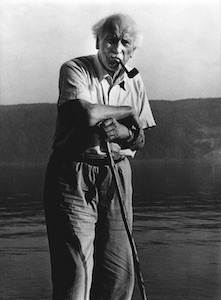Basic Jung – March 2022
Approaches Used in Jungian Analysis

Basic Jung is a series of late afternoon lectures given in the first week of each semester. Each series highlights a different aspect of Analytical Psychology, and offers an intensive introduction to basic Jungian concepts and ways of working, particularly for new students, guests and the general public. Although planned as a series, each course can be attended independently.
This semester's topic is “Approaches Used in Jungian Analysis”. Jung was wary of fixed “methods”, but Jungian analysis nevertheless uses a variety of established approaches. The first lecture introduces the major concepts of Jungian psychology. Subsequent lectures focus on the archetypal core, hidden potential and meaning of complexes, the importance of fairy tales and their therapeutic value, and psychological types as a “compass” for individuation. Then analysis of Frida Kahlo’s paintings shows how art can transcend the personal realm to reach an archetypal layer. The final lectures introduce sandplay and its potential to access the deeper layers of the psyche, and active imagination as a means to engage in dialogue with the unconscious.
All Basic Jung lectures will be broadcast live on Zoom. You can purchase Zoom attendance below on this page. See our Zoom Lectures page for more details.
Date & Venue
1–4 March 2022

Stampfenbachstr. 115, 8006 Zürich
Tram 11 or 14 to Beckenhof
Event Schedule
Tuesday, 1 March
15:00–16:45
** The originally scheduled course by Dariane Pictet has been cancelled and replaced with this one. **
Nancy Krieger, PhD
01 01 Lecture | Jung in a Matchbox
An introductory course presenting the basic concepts of Jungian psychology; consciousness, personal and collective unconscious, complex, archetype and the historic setting in which Jung conceived them.
17:00–18:45
John Hill, MA
01 02 Lecture | Perceiving the Archetype through the Complex
Instead of only tracing the origins of a complex back to early childhood trauma, the Jungian model tries to discover the hidden potential in the complex to provide structure and meaning to new experiences. Already in the time-transcending intentionality of the complex we witness its archetypal core.
Wednesday, 2 March
15:00–16:45
Ursula Ulmer, MA
03 03 Open Seminar | Can fairy tales help us understand the nature of psyche? Can they suggest a therapeutic approach?
17:00–18:45
James Johnston, MArch
01 04 Lecture | Psychological Types and Individuation
In this lecture we will review the important relationship of psychological types to individuation and thereby gain a better understanding of why Jung said of his type theory: "I would not for anything dispense with this compass on my psychological voyages of discovery."
Thursday, 3 March
15:00–16:45
Kathrin Asper, Dr. phil.
04 06 Lecture | Frida Kahlo - Light and Shadow [Part 1 of 2]
Frida Kahlo, the famous Mexican artist, suffered from serious physical disabilities due to an accident. She devoted her life to art and painted her suffering. Her paintings go beyond the personal realm and reach an archetypal layer.
17:00–18:45
Irene Berkenbusch, Dr. phil.
04 07 Lecture | Sandplay Therapy with Adults
Sandplay, according to Dora Kalff (1904–1990), is based on Analytical Psychology; it involves playing in and with sand and selected miniature objects. It activates fantasy, embodying it through expressive means. The sandbox is used as a projection surface allowing access to deeper layers of the unconscious.
Friday, 4 March
15:00–16:45
Kathrin Asper, Dr. phil.
04 06 Lecture | Frida Kahlo - Light and Shadow [Part 2 of 2]
Frida Kahlo, the famous Mexican artist, suffered from serious physical disabilities due to an accident. She devoted her life to art and painted her suffering. Her paintings go beyond the personal realm and reach an archetypal layer.
17:00–18:45
Penelope Yungblut, MA
11 08 Lecture | Active Imagination in the Journey of Individuation
We will explore how engaging imaginatively with our dreams, fantasies, affects, and other energies arising from the unconscious can heal emotional wounds, transform our sense of self worth, enable us to withstand collective pressure to conform, and foster a self of our own, which does not collapse under stress.
Cost & Registration
Payment in cash at the door
The Complete Lecture Series
General Entry: CHF 180
Students, Seniors, Disabled: CHF 120
Per Lecture
General Entry: CHF 30
Students, Seniors, Disabled: CHF 20
Gratis for ISAP Students and Analysts
Registration not required if attending in person at ISAPZURICH
For questions please contact [email protected]
Speakers
Downloads
| File Name | Type | Permissions | Changed Date | Date | Size |
|---|
Combined size: 0 B

